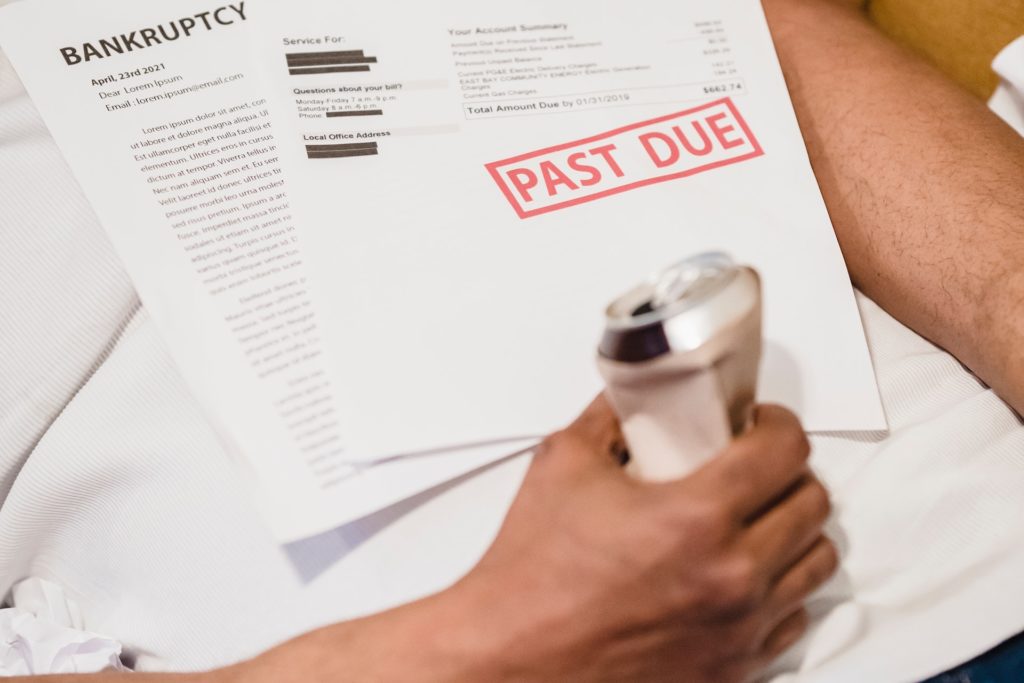A Complete Guide to Discharging Debts in Chapter 7 Bankruptcy

Filing for bankruptcy can be difficult and heartbreaking, but it may also give a much-needed fresh start financially. Chapter 7 bankruptcy is the most common form of bankruptcy, where your assets are liquidated to settle debts.
However, not all debts may be discharged in Chapter 7 bankruptcy. This article will discuss in greater detail which debts can be discharged and which cannot.
Secured Debts
Secured debts are backed by collateral, such as your home or car. In Chapter 7 bankruptcy, you must continue paying the debt if you want to keep your collateral. Otherwise, the creditor may be able to repossess or foreclose on the collateral. If the collateral is sold, the proceeds will be used to pay off the debt.
Unsecured Debts
Unsecured debts are those that do not have any assets as security. By filing for Chapter 7 bankruptcy, you can eliminate these debts and will not have any legal obligation to repay them. However, there are several instances when this may not be applicable.
The following can be discharged in Chapter 7 bankruptcy:
- Credit card debt
- Medical bills
- Personal loans
- Utility bills
- Past due rent
- Civil judgments (not related to fraud or intentional harm)
Conversely, some of the items that cannot be discharged in Chapter 7 include:
- Student loans (unless undue hardship can be proven)
- Child support and alimony
- Debts owed to the government (i.e., taxes)
- Fines and penalties imposed by government agencies
- Debts related to fraud or intentional harm
- Debts incurred while driving under the influence of drugs or alcohol
Priority Debts
Priority debts are certain debts that have higher importance than other debts when it comes to bankruptcy. These debts cannot be eliminated through Chapter 7 bankruptcy and must be paid completely before other debts can be addressed.
Some examples of priority debts include:
- Child support and alimony
- Certain taxes
- Wages owed to employees
- Debts owed to government agencies
Secured Debts with Equity
Secured debts with equity are backed by collateral, but the value of the collateral is greater than the amount owed. In Chapter 7 bankruptcy, if you want to keep the collateral, you must continue making payments on the debt.
If you cannot afford to make the payments, the creditor may be able to repossess or foreclose on the collateral and sell it to pay off the debt. The excess will be returned to you when the sale of the collateral generates more money than is needed to pay off the debt.
Key Takeaway
Secured debts with equity can be a double-edged sword in bankruptcy. On the one hand, they may allow you to keep valuable assets, such as a home or car, by continuing to make payments. On the other hand, if you cannot make the payments, you risk losing the collateral. If you are considering bankruptcy, consult a bankruptcy attorney to understand your options and the potential consequences of filing.
Angela R. Owens is an experienced bankruptcy attorney who can guide you on managing secured debts and protecting your assets in bankruptcy. She can help you evaluate your financial situation and determine whether bankruptcy is right for you. If you decide to file for bankruptcy, Angela can help you navigate the complex process and protect your rights.
Overcome your debt problems with the help of Angela R. Owens. Call (972) 360-3253 to schedule your free consultation!


